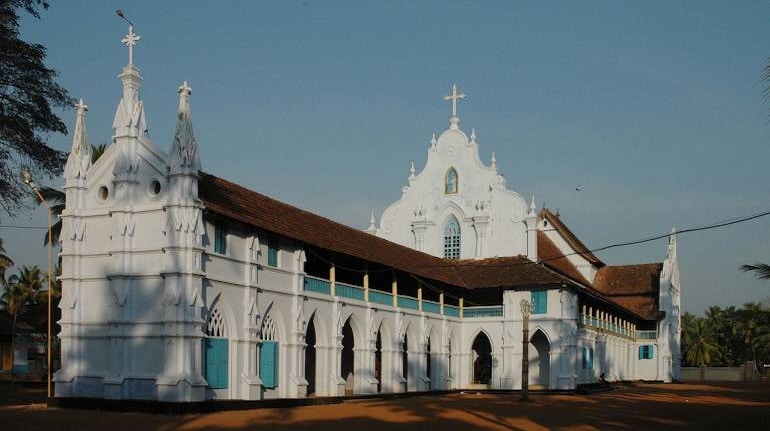



Rev Kuriakose Philip* has been worried, both spiritually and otherwise. For any church priest, the Holy Week leading to Good Friday and Holy Easter is a period of deep introspection.
It is also a time when engagement with the congregation is at its highest. The Protestant church that Philip belongs to, has a mass each of the days. On Good Friday, the service at the church goes on till late afternoon, ending with a community meal of rice gruel. It all ends with an early morning mass on Sunday, to celebrate Easter.
This year though has been unusual for the veteran clergyman. It is for the first time in his nearly 30 years of service that Philip didn't conduct the Holy Week services. Like the members of his parish in central Kerala, he was also following the mass on YouTube. It was being conducted by the senior-most bishop of the church, from the Church headquarters.
Click to follow the latest Coronavirus updates on our dedicated LIVE blog
Members of the Protestant church, from India and World over were doing the same, on Good Friday. And so it will be on Easter.
"It is highly spiritual, to lead a mass during the Holy Week. On YouTube, it is not the same," says Philip.
When the church first decided to limit Sunday mass from early March, the 56-year-old priest was nearly sure that the restriction would be lifted by the start of the Holy Week.
But with the number of those infected of COVID-19 increasing in Kerala and the whole country, there was no option but to ask believers to stay at home.
The Protestant church Philip belongs to, has over 1.5 million believers spread in India, and overseas. "We have been trying to keep in touch with other members, through various means," says Abraham, from Chennai, who didn't want to reveal his complete name.
From conducting prayer sessions on Zoom to sharing sermons and songs in WhatsApp groups, the story is nearly the same for the 28 million Christians in India.
And it is not just the regular masses, but also other activities have been impacted. "While there are no weddings during the Lent (40 days of fasting leading to the Easter), we did have a couple of funerals. Only close relatives were allowed to come to the church," says George, from Pathanamthitta, the district in Kerala that had initially seen a spurt in COVID-19 cases.
The financial crunch
For priests like Philip and senior officials of each Church, there is another aspect of the disruption that is beginning to worry them. The offertories have dried up, and that will impact the finances. The church, like other religious institutes, functions entirely on the largesse of its members.
"March is a very important month as it marks the end of the financial year. It is when nearly 25 percent of the estimated annual income comes in," says a senior official of one of the churches in Kerala.
Each member contributes to his or her church in multiple ways. There are offertories on Sunday, monthly subscriptions, donations for special causes and giving away a month or a day's income. "It is in March that most of the members clear off these dues," adds the person quoted above.
Each parish, where people go for the service, is self-reliant. It is through the offertories and other donations of its members, that each parish pays salaries of priests and admin staff, and conducts charitable activities.
Especially hurting the Church finances would be the lack of money from parishes overseas. A cursory look at the disclosures of churches, under the Foreign Contribution Regulation Act, shows that every year, contributions from members overseas peaked in the fourth quarter.
Though church members have been asked to contribute online, by most accounts, March has seen near zilch contributions in parishes across the country. And they will have to dip into their reserves to meet ends.
The new financial year hasn't started well either. The Holy Week, Good Friday and Easter are also days when believers open up their purses. "Our weekly collections from offertory averages about Rs 20,000. On Good Fridays, Easters and Christmas, this can go as high as Rs 90,000," says George.
Reserves will help churches tide over a couple of months. But the lockdown may get extended, and even otherwise, in the near future believers may prefer reading and following the word of God within the confines of their houses to prevent the virus.
For the church, its clergy, and their believers, it is a testing time - both spiritually and financially.
Follow all our Coronavirus coverage here
Discover the latest Business News, Sensex, and Nifty updates. Obtain Personal Finance insights, tax queries, and expert opinions on Moneycontrol or download the Moneycontrol App to stay updated!
Find the best of Al News in one place, specially curated for you every weekend.
Stay on top of the latest tech trends and biggest startup news.